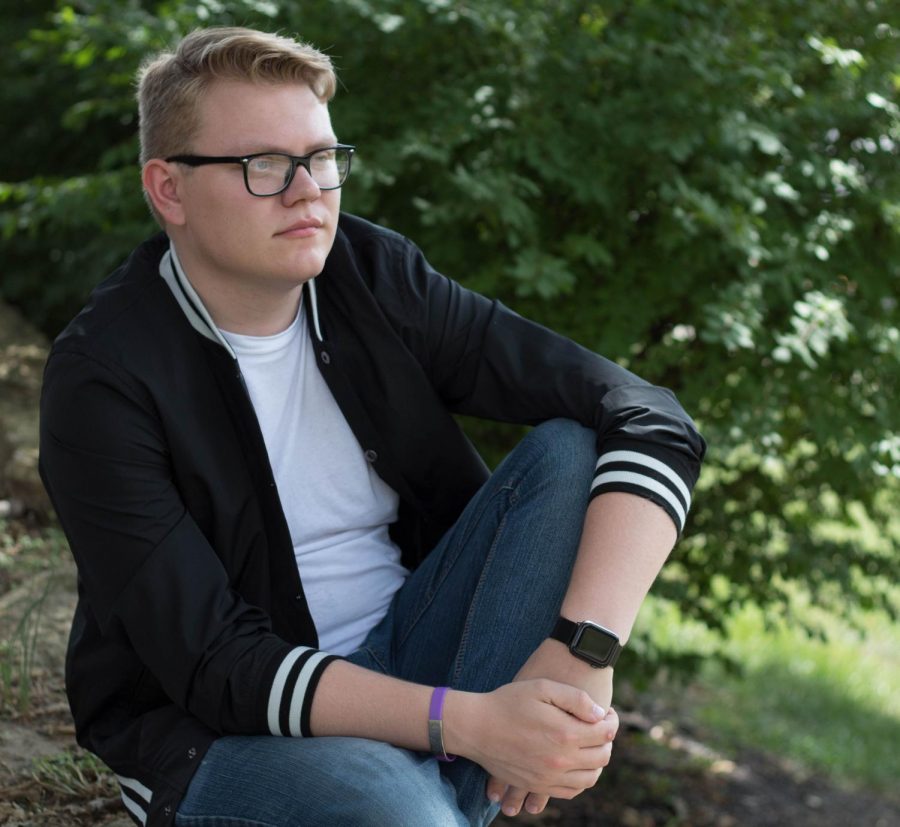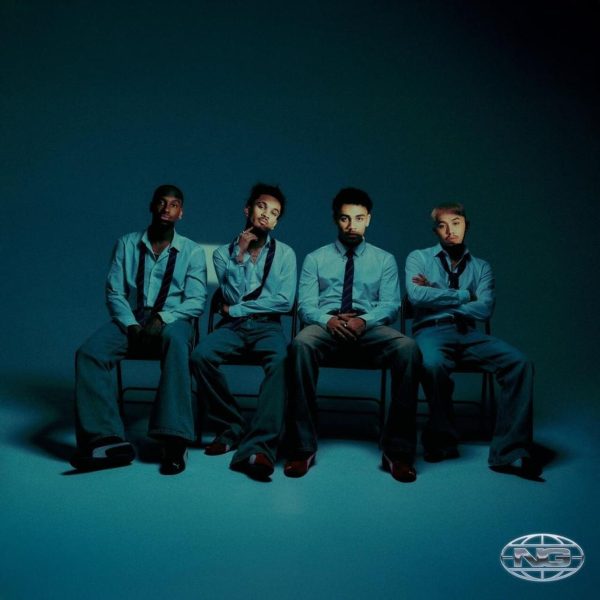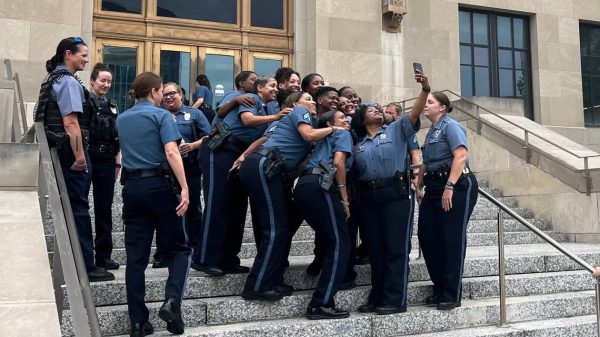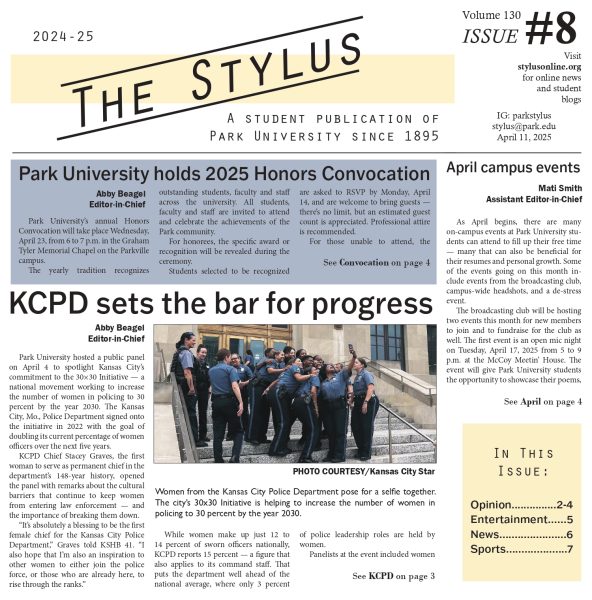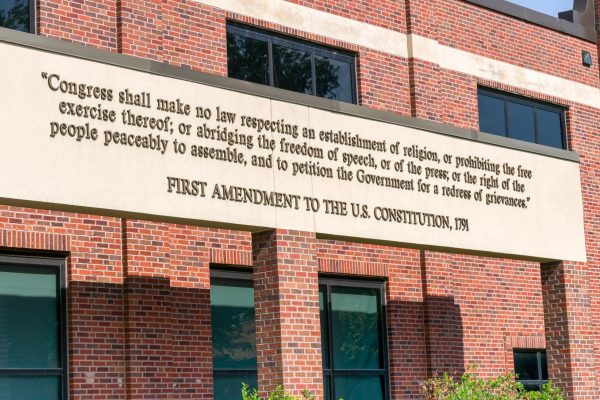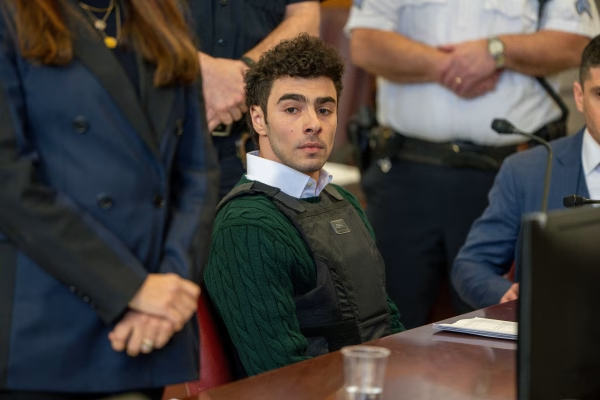Near death experiences bring new life perspectives
Christian Leonard, senior mathematics major, endured several health challenges over the summer.
“The first seizure was 30 minutes, which was just ridiculous,” said Christian Leonard, senior mathematics major and PSGA president. “I don’t remember the whole day of the seizures. I don’t remember getting to the hospital. I don’t remember being put into the first coma.”
On June 23, Leonard had five seizures. The five seizures happened in an 80-minute time span. Fifty of those minutes, he was seizing.
“Each of the seizures were potentially fatal because all of them hit five minutes, and once you hit five minutes it goes from a seizure to a status seizure,” he said.
Leonard had kidney failure, lung failure and lost his ability to stand or walk.
The U.S. National Library of Medicine states a single seizure lasting for more than five minutes is a medical emergency. They describe a seizure as, “the physical findings or changes in behavior that occur after an episode of abnormal electrical activity in the brain.”
Leonard was put into two medically-induced comas. The first coma was because the emergency room doctors could not get him to stop seizing. The second coma was induced because he had respiratory failure.
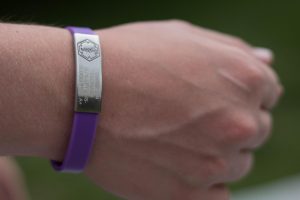
Leonard’s medical bracelet that informs first responders of his condition and medical history
“My lungs stopped working,” said Leonard. “I was taking 80 breaths a minute, but my oxygen level was 20 percent of what it should have been. I kind of just choked and passed out. I remember that one. It was scary. It was like ‘can’t breathe, can’t breathe, can’t breathe’ and then black. And then I woke up and thought it had been a few hours, but it had been three days.”
Leonard said he felt like a prisoner while in the hospital. Everyone was making decisions for him.
“It felt like I was just along for the ride,” he said. “Everybody else was deciding you’re going to do physical therapy, or move you to this floor, or you have to do this and it just felt like not in control of anything that was happening. It’s also really, really boring.”
Leonard had lost a lot of freedom while in the hospital. He lost his ability to walk and had to be helped to leave his bed.
Leonard lost his ability to walk because his muscles went through so much stress during the seizures. He described it as a really intense workout – like running a marathon without any training – causing large muscle tears. In a normal workout, muscles get microtears and a small build-up of lactic acid. Then the body repairs those tears, the kidneys remove the lactic acid and the muscles get stronger.
Since the seizures were so intense, his kidneys couldn’t keep up in removing the lactic acid, his muscles dissolved and his kidneys failed.
Leonard was determined to learn to walk again. As the PSGA president, he was supposed to give a speech at Park’s Opening Convocation on Aug. 23, and he didn’t want to give his speech with a walker. He said he worked on practicing how to stand, balance and walk. He had to teach his muscles how to hold themselves up again from his leg muscles to the tiny muscles in his feet and ankles.
Leonard met that goal.
A month after Leonard left the hospital, he and his family were in a car wreck on their way to a garage sale at 9:40 a.m. on Aug. 10.
They were hit from behind. Their car skidded sideways and then flipped and rolled. They rolled over three lanes going north, over the median, three lanes going south and then into the woods where they hit a tree and came to stop.
“The sound of the car basically just breaking, metal crunching, the glass shattering,” he said. “My window broke, the windshield caved in. My mom was screaming while we were flipping over.”
All three of them survived. Leonard’s mom had the worst injury. Her hand had 20 broken bones.
Leonard said as they were waiting for help, his mom tried to hide her hand from him. She knew it would cause him stress and stress is one of the triggers for his seizures.
Bystanders tried helping, Leonard said. One woman who witnessed the crash, took a picture of the license plate of the person that hit them before he drove off. One man climbed onto their hood to try to speak with them. An off-duty firefighter tried to help them get out through their sunroof. Other people stood on the side of the highway to direct the first responders to where they were in the woods because the car was hidden.
These two experiences gave Leonard a new look on life. He explained that before the seizures and the wreck, he was living life on autopilot. He said these occurrences made him change his priorities.
“It does make you realize that there’s a lot that you do day-to-day that doesn’t bring you anything, doesn’t make you happy, doesn’t make you better,” he said. “So, it’s like why? Why am I putting so much effort into this or why am I letting this consuming me?”
Leonard said he also learned to not only focus on big goals, but also on small daily goals.
“On those days where you’re not doing as well, being able to accomplish a goal helps you feel better,” he said. “But you can also chain the little goals together and then eventually you’ll hit something big and accomplishing things makes you feel better.”
Some of his small goals are to make his bed, go for walks and eat salads.
Leonard said he also learned how important support systems are. He was hospitalized for 21 days and his parents were there the entire time. They slept in the same room as him in order to help him whenever he needed it.
“One of the biggest things that I’ve learned is that although things happen to you, it’s not just you that has to overcome them,” he said. “You build a support system, and then you use that system to figure out how to overcome these obstacles, whether that be one day at a time or the whole summer. You have to break it down into little pieces.”
Leonard has several big life goals. He wants to go to Stanford to get an engineering degree after he graduates from Park. He said he wants to work with robotics and artificial intelligence and to make his own technology company.
Or he said he would love to be a comedian or talk show host.
“I want my job to be fun, and I think being a comedian would be fun,” he said.
“There’s a practical side and a follow your dreams side,” he said. “The dream is to enjoy whatever you’re doing regardless of what it is, whether that be making people laugh or trying to change the world. At the end of the day whenever I’m long gone, I hope that I left the world in a better place than I found it, whether that be easing people’s stress or coming up with the next big technology or somehow doing both.”
Your donation will support the student journalists of Park University. Your contribution will allow us to cover our annual website hosting costs, freeing up other funds for equipment, printing and training.



